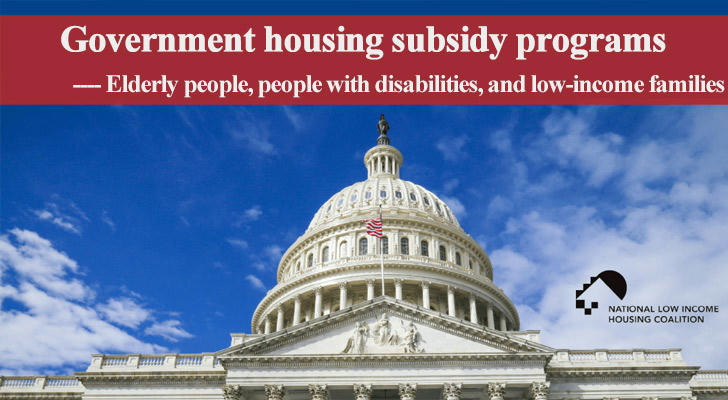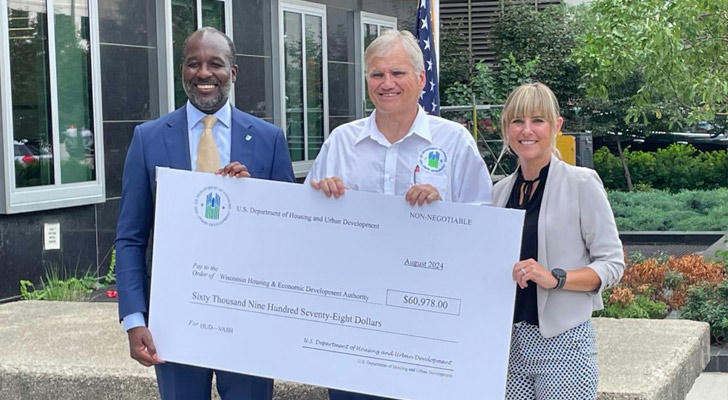🏠 How to Apply for Government-Supported Housing?
Government housing subsidy programs | Elderly people, people with disabilities, and low-income families

Finding a stable and affordable home can feel overwhelming, especially for seniors, individuals with disabilities, and low-income families. Fortunately, federal housing support programs offer essential aid to those who need it most.
What Is Government-Assisted Housing?
Government-assisted housing refers to programs designed to help eligible individuals and families rent homes at prices they can comfortably afford. These programs are primarily funded and overseen by the U.S. Department of Housing and Urban Development (HUD) and are implemented locally by Public Housing Agencies (PHAs).
Key Programs at a Glance:
| Program Type | Description |
|---|---|
| Public Housing | Owned and managed by local agencies, these apartments and homes are leased directly to qualifying individuals and families with limited incomes. |
| Section 8 Housing Choice Vouchers | Eligible households receive rental assistance to lease privately owned homes. Individuals pay part of the rent, while the remainder is subsidized by the government. |
| Section 202 and Section 811 Housing | Section 202 supports seniors aged 62 and above, while Section 811 serves people with disabilities. Both programs offer homes with accessible features and support services, with rents typically capped at 30% of the tenant’s adjusted income. |
| Project-Based Rental Assistance (PBRA) | Tied to specific housing developments, this assistance helps residents afford to live in select buildings as long as they remain there. |
Each program features its own eligibility requirements, application steps, and waitlist processes—collectively helping millions secure safe, reliable housing across the United States.
Case Highlight: David’s Path to Housing
David, a 70-year-old retiree in Ohio living with mobility challenges, struggled to afford market rents on his monthly benefits. By applying through his local housing agency for a Section 202 property, he secured an accessible apartment where his rent was limited to a portion of his income. With on-site support services, he regained both independence and peace of mind.
Who Is Eligible?
Eligibility considers these core factors:
| Criteria | Details |
|---|---|
| Income Limits | Typically household income must fall at or below 50-80% of the area median. |
| Citizenship | At least one family member must be a U.S. citizen or eligible immigrant. |
| Background Check | Screening includes rental history, credit, and, for some programs, criminal background. |
| Special Status | Section 202 requires applicants to be age 62+, and Section 811 requires proof of a qualifying disability. |
Application Process
Applying often begins online through an area PHA:
- Prepare identification, proof of income, and if relevant, verification of age or disability.
- Complete an application detailing household composition, desired location, and program preferences.
- Maintain communication with the agency to ensure application status and respond promptly to any requests for information.
Being placed on a waitlist is common, so timely and accurate documentation significantly improves the chances of securing a spot.
Why Consider Government Housing Assistance?
- Rents are limited and based on income—typically no more than 30%.
- Long-term stability is possible, especially if lease requirements are met.
- Certain groups, including seniors and people with disabilities, may receive priority.
- Some properties offer support services like healthcare navigation and community resources.
- Federal standards ensure safe and accessible living conditions.
Practical Tips for Applicants
- Gather necessary documents early.
- Research and apply to multiple programs for better odds.
- Respond quickly to all requests from housing agencies.
- Ensure all information is complete and accurate to avoid delays or disqualification.
Final Thought
Affordable housing isn’t just about shelter—it’s about security, dignity, and opportunity. Explore the available government-supported programs and take the first step toward a safer and more stable living situation for yourself or your loved ones.

